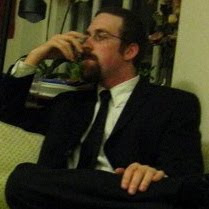Terms like: Orthodox, Observant, Frum, and Shomer Mitzvot all conjure up images of a very specific kind of Jew. This is an individual who is scrupulous in living according to the norms and customs established and interpreted through the Shulchan Arukh (Code of Jewish Law). This individual likely sees him/herself as as halakhically centered, focused on a way to "properly walk" before God. Unfortunately in the Messianic Jewish community (inherited from secular, conservative, reform, etc. Jews), stereotypes and malicious feelings have arisen do to the behavior of some Jew who adhere to this way of life. This usually results in snide remarks about dress and behavior and generally leads to small attacks on any individual seeking to grow in "halakhic observance."
"Don't go too far."
"I don't want to see you in a black hat."
These are the kinds of remarks one can often hear if (Heaven Forfend) he/she is caught bentching when no one else around is doing it. The meta-communication is: "Be observant...but not TOO observant. And above all else HIDE your observance lest it ruffle too many feathers." While this kind of attitude is often flaunted as seeking to live a balanced approach to Jewish religious life it ends up normalizing, at best, dividing at worst, and it rarely harmonizes. I pray that this pervasive attitude will be replaced with a more "sterling way."
I have a modest suggstion to offer for our consideration...
At issue is not whether or not Messianic Jews look like Orthodox, Reform, Conservative, Renewal, etc. The question is how we can be the best followers of Yeshua and live out the very best that Written Torah, Oral Torah, and the Living Torah have to offer. I want to offer the term: Halakhic Observation.
Halakha literally means "walk;" it does not mean "law." We Jews have laws, and halakha teaches us how to walk in those laws. The aversion the early Rabbis had in writing down halakhot was due to the fear that halakha would be elevated to the level of undisputed authority in the same way the Written Torah is; to write it down could end the halakhic discussion and make it difficult to adapt the Torah to new circumstances for the Jewish community. Sadly, the Rabbis fears came true in many ways, and most Jews think only of the Shulchan Arukh when they speak of living "halakhically." Now before we start wagging our fingers at the Orthodox again I want to remind us that other branches of Judaism have done the same with their own standards, and it behooves us to look at the problem with new eyes. We need to begin a communal process of dialogue not only about what our halakhic norms should be, but also how to think and live as halakhic communities. This could enable us to avoid the pitfalls of emphasis on norms at the expense of learning the principles that guide the norms.
For example:
Do we drive on Shabbat because "we don't live in the shtetl anymore," or because we see the opportunity to hear the Torah as a community on Shabbat morning as a mitzvah that will bare more fruit in the long term. I pray it will one day be the latter reason.
Halakhic Observance has come to mean "observing halakha." Halakhic Observation means that whatever we encounter, we live in it halakhically. Halakhic Observation means that we observe the world around us, our communal lives, our relationship with one another, and our relationship with God by means of our walk in God's perfect guide...It means that we observe every aspect of our lives as an opportunity to do a mitzvah...It may enable us to truly be living Torahs ourselves...

No comments:
Post a Comment